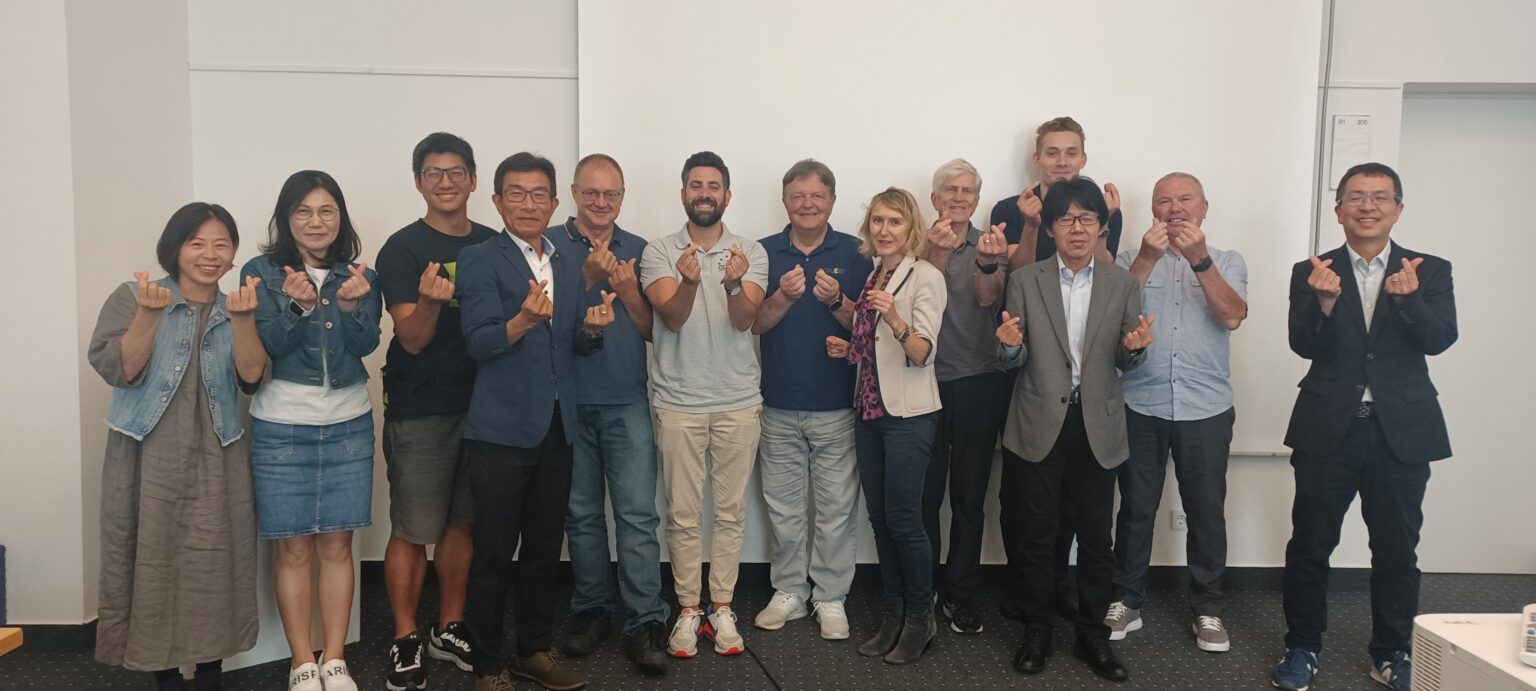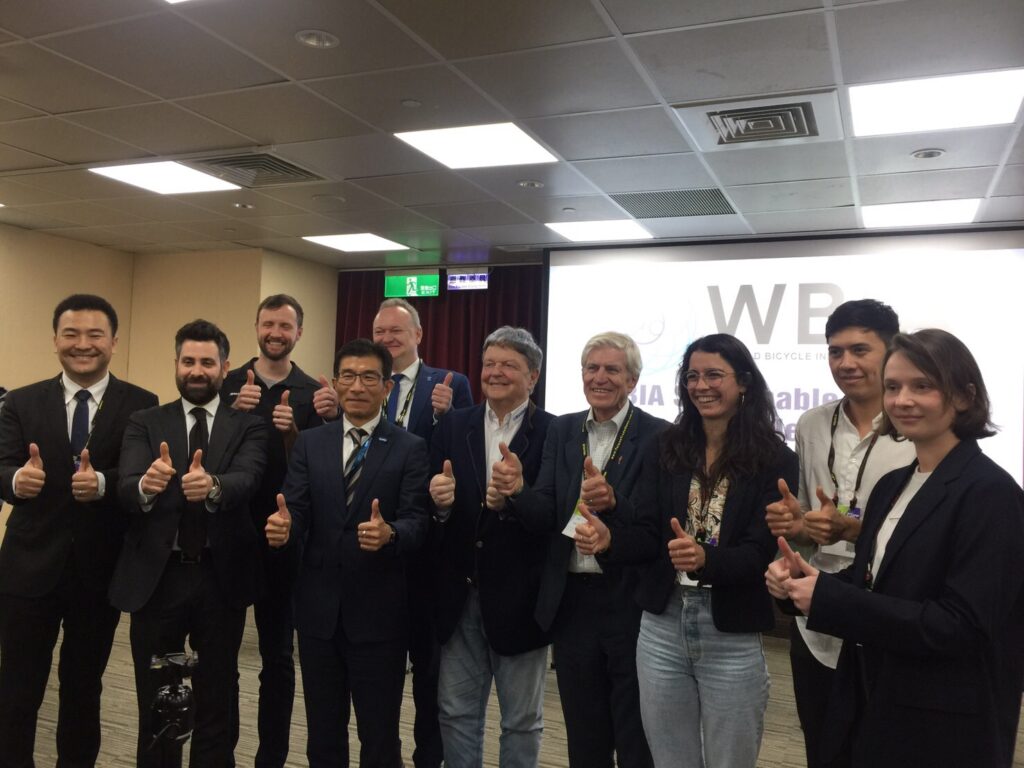Brussels, 15 May 2024 – It is with profound sorrow that CONEBI and the WBIA mourn the passing of Erhard Büchel, our esteemed President and leader in the global bicycle industry. Erhard peacefully passed away on 12 May at the age of 71. His passing represents a significant loss both in the industrial and associations communities, at all levels: he was a successful entrepreneur, a mentor, a friend, and a guiding light with his knowledge.
Erhard’s impact on the global bicycle industry is enormous. After joining his family-owned company Büchel GmbH & Co. Fahrzeugteilefabrik KG in 1976, he achieved a significant milestone in 1985 by creating the first joint venture in Shanghai to manufacture bicycle and automotive parts. Erhard expanded the company through acquisitions and joint ventures across Europe and Asia, solidifying the company’s position as a prominent player in the global industrial scenario.
Erhard left an indelible mark also in the associations at national, European and world level: from ZIV to COLIPED, CONEBI and WBIA. His lead and forward-looking mindset brought him to be President of CONEBI in 2017, endorsing the creation of the WBIA from the European side in
2016. During his tenure as our esteemed President, he embodied integrity, dedication, and unparalleled service, leaving behind a memorable impact. His visionary leadership, passion, and unwavering commitment have set a standard that will continue to resonate for the years to come.
Massimo Panzeri, CONEBI Board Member, stated: “Erhard was a brilliant, open-minded and forward-thinking person. He was a friend and an example of integrity and dedication. I feel very sad to have lost his vision and the possibility to share ideas of the future with him. He has led our industry through fantastic and also vey difficult years with dedication and intelligence. We have lost a real Man.”
Pedro Araujo, CONEBI Board Member, said: “Erhard will be missed for his dedication to our Industry. I feel gratitude for having crossed paths with him.”
Remco Tekstra, CONEBI Board Member, said: “Erhard represented the industry with passion. His passing will leave a void in the board of CONEBI, but his legacy will live on in the future.”
Taiwan Bicycle Association, WBIA Member, said: “We are deeply saddened to learn the passing of President Erhard, whose kindness and generosity had provided TBA the opportunities to work with WBIA closely.
“It was our great loss to lose a remarkable leader and partner. We will miss him dearly. His tireless contributions for the industry will always be remembered and treasured.”
Bob Margevicius on behalf of PeopleForBikes, WBIA Member, stated: “Erhard Buchel was not just a leader, but a visionary, a mentor, and a friend. His passion, dedication, and unwavering commitment to CONEBI and WBIA leaves an indelible mark on me, the bicycle industry, and all of us!
“Erhard inspired us with his humility, knowledge, diplomacy, and love of cycling. His leadership guided us through both industry challenges and triumphs. For this I am grateful for his contribution to mankind. His legacy will continue to resonate within industry as well as CONEBI and WBIA for years to come. Let’s honor Erhard by upholding his values while continuing to strive for excellence in all that we do.”
Yozo and Taizo Shimano as a member of Bicycle Association Japan, WBIA Member, said: “We are very sorry to hear of Erhard’s passing and extend our condolences.
“We would like to thank him for his contribution to the bicycle industry and pray for his soul.”
Aditya Munjal on behalf of All India Cycle Manufacturers’ Association (AICMA), WBIA Member, stated: “AICMA convey its heartfelt condolences to the family, friends, and fans on the passing of Mr. Erhard Büchel – a visionary leader in the World Bicycle Industry. His legacy of proven leadership, craftsmanship and innovation will continue to inspire the bicycle fraternity worldwide. May his spirit ride in the wheels he set in motion.”
Beyond the professional sphere, Erhard’s warmth, empathy, and ability to connect with everyone he encountered won him a place in the hearts of all who had the privilege of knowing him. CONEBI and WBIA will never forget his generosity in sharing his knowledge, inspiring future generations, and encouraging others to make a meaningful difference.
The associations extend their deepest condolences to his family and friends during this difficult time. May he rest in peace.
For more information, please contact:
Manuel Marsilio, General Manager – CONEBI
Alix Stamp, Communications, Media & Events Manager – CONEBI






